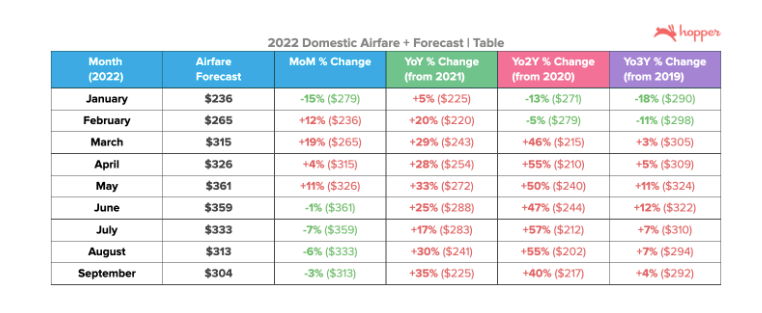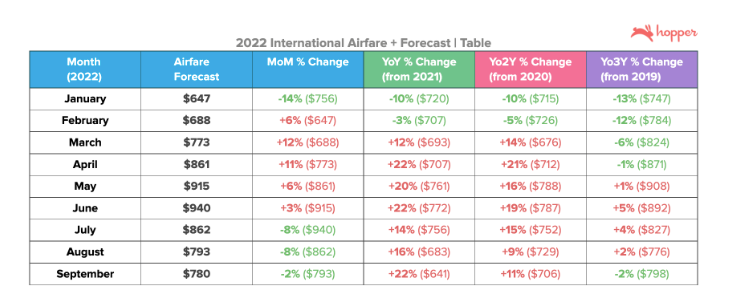Zinger Key Points
- Jet fuel is the second-biggest cost, generally accounting for 30% of an airline's operating expenses.
- Some airlines hedge by agreeing to purchase fuel for the future at a predetermined price.
- Today's manic market swings are creating the perfect setup for Matt’s next volatility trade. Get his next trade alert for free, right here.
If you think filling your car’s gas tank is expensive, how about filling the tanks for a Boeing Co BA 737-800?
A 737-800 has a fuel capacity of 6,875 gallons and as of April 25, according to the U.S. Gulf Coast Jet Fuel Spot price, jet fuel costs $4.27 a gallon, holding steady between this price and $3.04 since March 1. So, to totally refuel the plane would cost $29,356.25, allowing the jet to fly 3,159 miles without refueling.
As a comparison, to fly from New York City to Los Angeles, California is 2,446 miles.
Hedging a Bet: The rising cost of jet fuel — in part a result of Russia’s invasion of Ukraine — is just one of the pieces of the puzzle for why airplane tickets are more expensive than in previous years.
After labor costs, jet fuel is the next biggest cost, generally accounting for 30% of an airline's operating expenses. While jet fuel prices are going up, it takes some time for that increase to be passed along to the customer, with one of the mitigating factors being airlines' hedging programs.
Hedging is agreeing to purchase fuel for the future at a predetermined price.
See also: Spirit Airlines Rejects JetBlue's Takeover Bid; JetBlue Renews Offer
Who does it? Southwest Airlines Co LUV, which according to Axios Atlanta, has approximately 64% hedged for the rest of 2022.
On the other hand, American Airlines Group Inc AAL stopped hedging fuel in 2014. Other non-hedgers? United Airlines Holdings Inc UAL and Delta Air Lines, Inc. DAL, though Delta owns the Trainer Refinery, located outside of Philadelphia, through its Monroe Energy subsidiary. Delta bought the refinery in 2012, so it wasn’t too dependent on spot fuel prices and could have a steady supply.
Flying Like It’s 2019: According to a Hopper Media study — and what is apparent when trying to book an airplane ticket now — prices are rising, though some are about even with pre-pandemic prices.
In the study, as of April 2022, “At $330/round-trip, domestic airfare is trending 7% above 2019 prices — it is also the highest average domestic airfare we’ve seen since we started collecting this data. International airfare is matching 2019 prices at $810/round-trip.”
In the study’s six-month outlook, domestic airfares are expected to rise “10% through May to $360/round-trip. Following June, airfare should seasonally decline into the fall shoulder season.”

If planning a trip overseas, the study forecasted that airfare is going to match 2019 prices through May “before rising toward $940/round-trip in June, amounting to a 15% increase from current prices and reaching about 5% above 2019 prices in June, before declining seasonally into the fall.”

In addition to jet fuel, other factors contributing to airplane ticket costs going up or down include seasonality, seat capacity and carrier competition.
But for now, most eyes are on jet fuel costs.
Edge Rankings
Price Trend
© 2025 Benzinga.com. Benzinga does not provide investment advice. All rights reserved.
Trade confidently with insights and alerts from analyst ratings, free reports and breaking news that affects the stocks you care about.